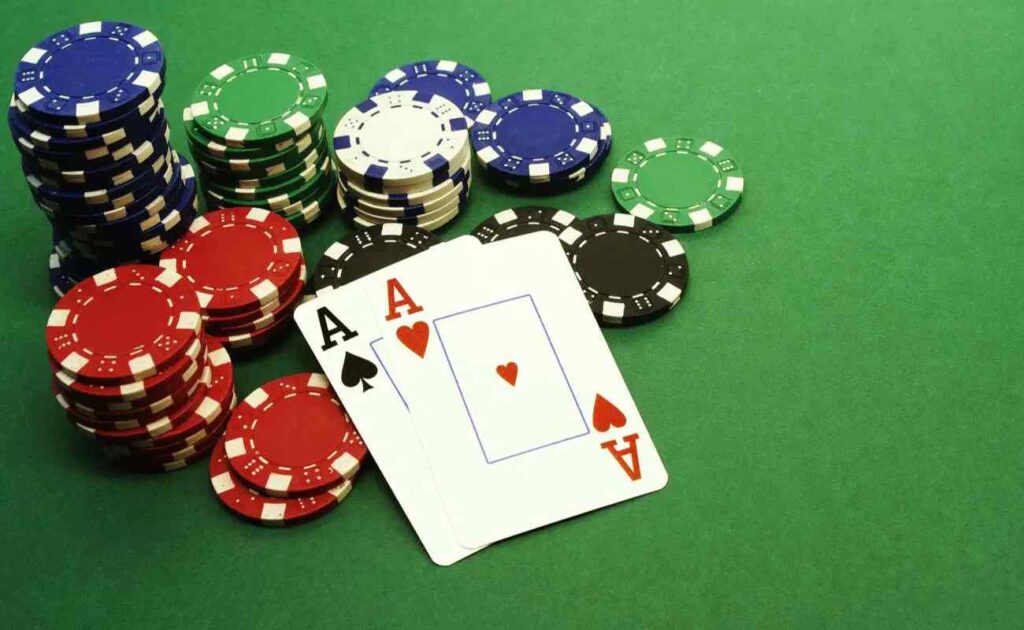Can You Win The Main Event With Just Pure Luck?

When you hear the term “odds,” it often relates to the likelihood of an event happening compared to it not happening. Probability, on the other hand, measures the chance of an event occurring, usually expressed as a ratio or percentage. Understanding these terms is crucial for making informed decisions in areas like gambling, statistics, and everyday life.
Probability is a way to quantify the uncertainty of events, ranging from 0 (never happening) to 1 (always happening). If you flip a coin, the probability of getting heads is 0.5, or 50%. It’s a simple fraction of the favorable outcomes over all possible outcomes. Odds differ slightly; they compare the chance of the event occurring to the chance of it not occurring. The odds for getting heads in a coin flip are 1:1 – there’s an equal chance for both sides.
To put it in a table:
| Event | Probability | Odds |
|---|---|---|
| Coin Flip | 50% | 1 to 1 |
| Rolling a 7 | 16.67% | 5 to 1 |
| Drawing a Heart from a Deck | 25% | 1 to 3 |
Remember, the odds “against” an event are just the inverse of the odds “for” an event. So if you have 5 to 1 odds for rolling a 7 with two dice, that means you have 1 to 5 odds against.
It’s your awareness of these odds that can inform your expectations. If you draw a card from a standard 52-card deck, your odds of getting any heart are 1 in 4, because 13 out of 52 cards are hearts. Knowing these odds helps you understand the risk and reward involved in betting on this event.
In summary, probability gives you a clear picture of the event’s likelihood while the odds offer a comparison of the likelihood of the event to its alternative. Keeping these concepts in mind allows you to approach uncertain situations with more confidence and strategy.
Luck’s Role in Every Stage of the Main Event

Luck weaves its way through the main event at every stage, and your understanding of its influence can shape your approach and response to outcomes.
Initial Encounter: When the main event kicks off, the first variable you’ll likely encounter is opportunity. Pure chance can play a role in presenting opportunities where skill and preparation take over. Imagine two equally skilled competitors: sometimes, just the draw of a lot or an unexpected opportunity tips the scales, marking the initial stage where luck might grant you an edge.
Preparation Phase: While preparing, you might come across fortunate resources or timely information. These nuggets of serendipity can refine your strategy and increase your readiness. Seize these moments when they arise, as they can sometimes be the difference between an adequate plan and a winning one.
Execution: As the event unfolds, uncontrollable elements introduce themselves. Perhaps the weather shifts favorably, or competition makes an unforeseen mistake. These instances aren’t in your control, but they can significantly swing the outcome in your direction. Stay adaptable and ready to pivot; harnessing luck when it strikes here is a skill in itself.
Reflection: After the event concludes, reflect on the role of unforeseen factors. Recognizing where chance helped or hindered will ground your perspective, attributing success to both your efforts and the fortunate turns that came your way.
Luck’s unpredictable nature means it’s not reliable to solely count on, but it’s a component that you interact with at every stage. Make room for this randomness, prepare as best you can, and use each lucky break to its fullest potential.
Famous Examples of ‘Lucky’ Main Event Wins
When you think about incredible main event wins, Jamie Gold’s victory in 2006 certainly stands out. His win at the World Series of Poker (WSOP) Main Event not only brought him fame but also a staggering $12 million in prize money. What makes it even more significant is the record-breaking field he outlasted, with 8,773 other hopefuls sharing the dream of that top spot.
Let’s not only applaud the strategic mastery but also acknowledge the moments of luck involved in such tournaments. Sometimes, it’s the right card at the right time or an unexpected fold from an opponent that leads to victory. Remember, in poker, the element of chance flirts with every hand dealt.
Moving beyond the green felt, consider the diverse experiences of those who found themselves lucky when they least expected it. For instance, Kevin Hines’ story is different yet pertinent. His fortunate survival after jumping from the Golden Gate Bridge in 2000 is a harrowing tale of despair met with an unexpected second chance at life—an unforeseen win in its own tragic main event.
While each story vastly differs in context, they embody the essence of unexpected fortune intercepting human endeavors. Luck serves as a wildcard, capable of redefining outcomes and, at times, awarding the equivalent of a main event win against all odds.
Remember, whether it’s a blend of skill and chance in a card game or a miraculous survival from a dire situation, these instances share the common thread of luck—emerging when least expected and often most needed.
Skill Vs. Luck: What the Pros Say

In the world of success, you’ll hear varied opinions from professionals across fields, but the consensus often boils down to a mix of skill and luck. Nassim Taleb and Michael Mauboussin, risk analysts, along with economist Robert Frank, shed light on this interplay. Their studies suggest that, while skill is crucial, luck’s role in success might be more substantial than you’d initially think.
Imagine your career as a combination of talent and chance. You sharpen your skills through hard work and experience, which is entirely within your control. However, there’s also the element of being at the right place at the right time—something that falls into the domain of luck.
Think of luck as the unexpected opportunity that knocks on your door. Your role is recognizing it and making the right call on whether to welcome it in. It’s about seizing the moment when it arrives, and that takes a discerning eye and a mindset prepared for the unexpected. These are skills in their own right.
Remember, success doesn’t equate merely to individual brilliance. Sometimes, it’s the serendipitous moments that catapult you forward. It is why you might find two equally talented individuals, but one having more significant success than the other—sometimes it’s just a little more luck tipping the scales.
In your pursuit of success, nurture your ability to spot and capitalize on these lucky breaks. It’s about staying alert and ready, so when luck comes calling, you’re prepared to answer. Keep in mind, as the pros assert, that success is rarely a solo feat of skill alone—it’s a partnership with the unpredictable nature of luck.
Can a Complete Beginner Win with Pure Luck?
The phenomenon of a complete beginner achieving unexpected success in a game or activity might seem like pure chance, and it’s something you might have witnessed or even experienced yourself. This concept is widely known as beginner’s luck.
Consider gambling, where the outcome is heavily influenced by chance. Here, beginners can and sometimes do win big purely by luck. The odds dictate that anyone can win, regardless of experience. For instance, novice gamblers have been known to hit the jackpot on their first play, with no prior expertise or strategy.
But it’s not just about gambling. Take sports or board games, where some skill is involved. New players may still triumph over seasoned ones on occasion. This could be for a variety of reasons:
- Experts might overthink: Vexed by intricate strategies, they could slip up—a window of opportunity for the beginner.
- Underestimation: Opponents may not play their best game against a newcomer, leading to an unexpected loss.
- Pressure-free performance: Newbies, unburdened by expectations, may play more relaxed and thus, paradoxically, perform better.
A Norwegian study indicates a notable contrast in the occurrence of beginner’s luck between at-risk and not-at-risk gamblers, prompting further discussion on the psychological factors at play.
When you’re at the starting line, whether you’re rolling dice or drawing cards, booming shots or spinning reels, luck could be your invisible ally. There are moments where skill steps aside, and the randomness takes the wheel. The key takeaway? While experience and proficiency are valuable, the laws of probability do sometimes smile on the novice.
